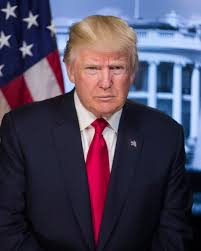As the U.S. presidential election approaches, Canada could be facing a potential recession depending on the outcome, economists suggest. Protectionist policies from a second Donald Trump presidency, particularly proposed tariffs on imports, could have a significant negative impact on Canada’s economy.
Trump has floated the idea of imposing blanket tariffs, starting at 10% on all trading partners and potentially rising to 20% or higher, especially for nations like China. Desjardins’ chief economist, Jimmy Jean, warns that a second Trump term could be “much more disruptive” for Canada compared to a Kamala Harris administration, which is expected to largely continue the policies of President Joe Biden.
Economic Impact of Tariffs
Jean and his team at Desjardins conducted a forecast analyzing Trump’s proposed 10% tariffs and their impact on Canada. The results suggest that Canada’s real GDP could shrink by 1.7% by 2028, with the economy experiencing at least one quarter of negative growth. If Trump doubles the tariffs to 20%, a recession in Canada would be almost certain.
While Canadian officials like Kirsten Hillman, ambassador to the U.S., have attempted to calm concerns by saying such tariffs might not apply to Canada, Jean points out that the energy and manufacturing sectors, which are major contributors to Canadian exports, would be heavily affected.
Trump’s plans to ramp up U.S. oil production would further lower global oil prices, which could reduce prices at the pump for Canadians but would also negatively impact Canada’s oil exports, hurting the overall economy.
Interest Rate Cuts and Inflation Risks
Jean also predicts that an economic slowdown under Trump could accelerate interest rate cuts by the Bank of Canada, although this might come with inflationary risks as tariffs are expected to push prices higher.
Trevor Tombe, an economist at the University of Calgary, echoed these concerns. He highlighted the complex relationship between Canada and the U.S., noting that 12% of Canadian exports to the U.S. consist of American-made components. A trade war, fueled by rising tariffs, could easily tip Canada into recession while also harming the U.S. economy.
Tombe estimates that the average Canadian could see a loss of $1,100 in annual income due to the economic downturn caused by increased protectionism.
Protectionism Beyond Trump
While Trump’s protectionist policies are causing the most concern, Tombe points out that the Democrats, including current President Joe Biden, have also implemented America-first policies. The ongoing softwood lumber dispute is a clear example of the challenges that Canada faces in its trade relationship with the U.S., regardless of which party is in power.
The future of Canada’s economic stability may depend on how well the government negotiates trade deals with the next U.S. administration, Jean suggests. Canada was able to negotiate exemptions from tariffs in the past, such as in the revised CUSMA deal, but a second Trump presidency could be less flexible.
In the event that external trade becomes more difficult, Tombe advises Canada to focus on strengthening internal trade between provinces to mitigate the effects of rising global uncertainty.
The looming U.S. election could have significant consequences for Canada, with economists urging both policymakers and businesses to prepare for potential disruptions. If Trump returns to the White House, Canada may face a tough economic road ahead, with recession and increased tariffs on the horizon.

